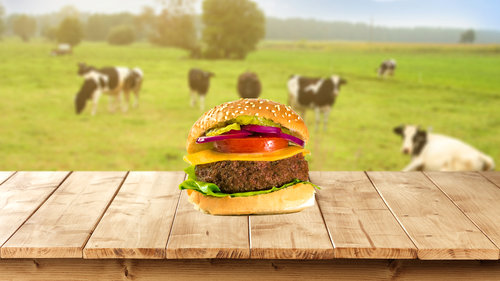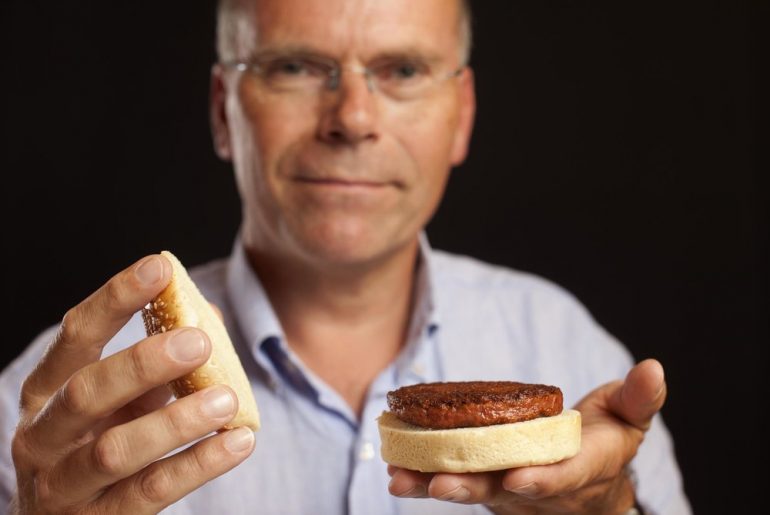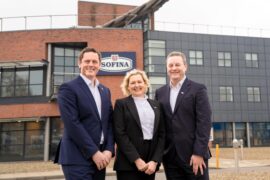Mosa Meat, the Maastricht, Netherlands-headquartered food technology company whose founders Mark Post (pictured above) and Peter Verstrate introduced the world’s first cultivated beef hamburger in 2013 by growing the meat naturally from cow cells, has raised $55 million as part of a larger Series B funding round. The cash will employed to extend its current pilot production facility in Maastricht, develop an industrial-sized production line, expand its team, and introduce cultivated beef to consumers.
While no date has been announced for an introduction to the marketplace, the company will work with regulators to demonstrate the safety of cultivated beef, in order to achieve regulatory approval to serve consumers in Europe.
The Series B funding round is led by Luxembourg-based Blue Horizon Ventures, the food technology fund that aims to support and promote a positive global impact on the environment, human health and animal welfare. Dr. Regina Hecker is joining the board with special focus on science, scaling and regulatory issues. They are joined by Bell Food Group, M Ventures and other mission-based investors and advisors.

Mosa Meat, which now has a team of 50 scientists, engineers and other personnel, has reached critical technical milestones in 2019 and 2020 including an 88x reduction in growth medium cost, and removing fetal bovine serum from the production process.
“We are very excited to welcome our new partners and see existing partners continue our journey together,” said CEO Maarten Bosch. “With their support and capabilities, we have the opportunity to take the next concrete steps to scale production, make progress towards a cleaner, kinder way of making real beef, and ultimately increase the resilience, sustainability, and safety of our global food system.”
“We are excited to be joining Mosa Meat as lead investor in this round,” said Dr. Hecker, a Blue Horizon Ventures partner. “Following a thorough investigation of its technology and team, we are convinced that Mosa Meat is strongly placed to pioneer the scale-up of cultured meat.”
This funding round follows a successful Series A round in 2018, which included investments by M Ventures, Bell Food Group, Nutreco and Lowercarbon Capital.





